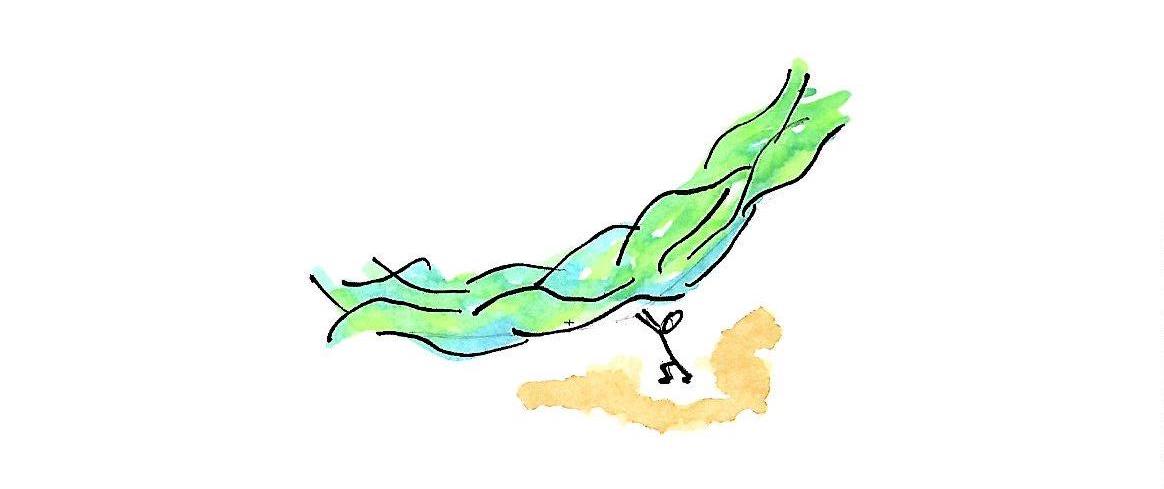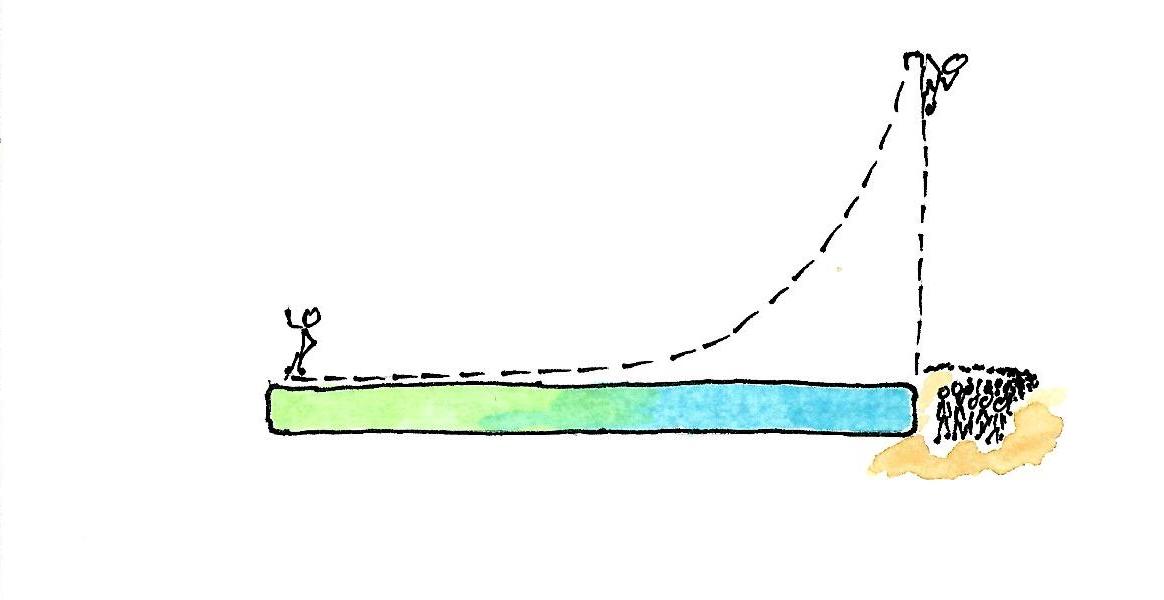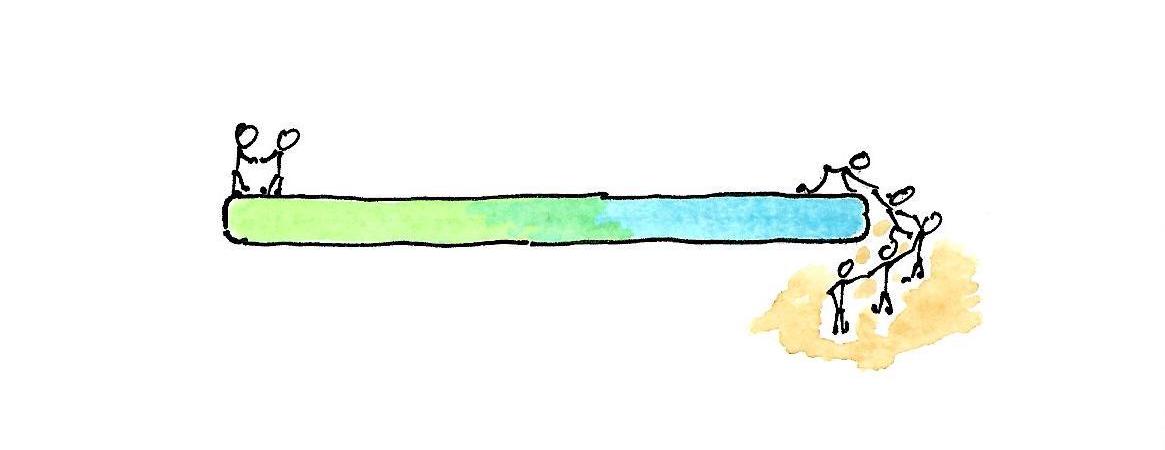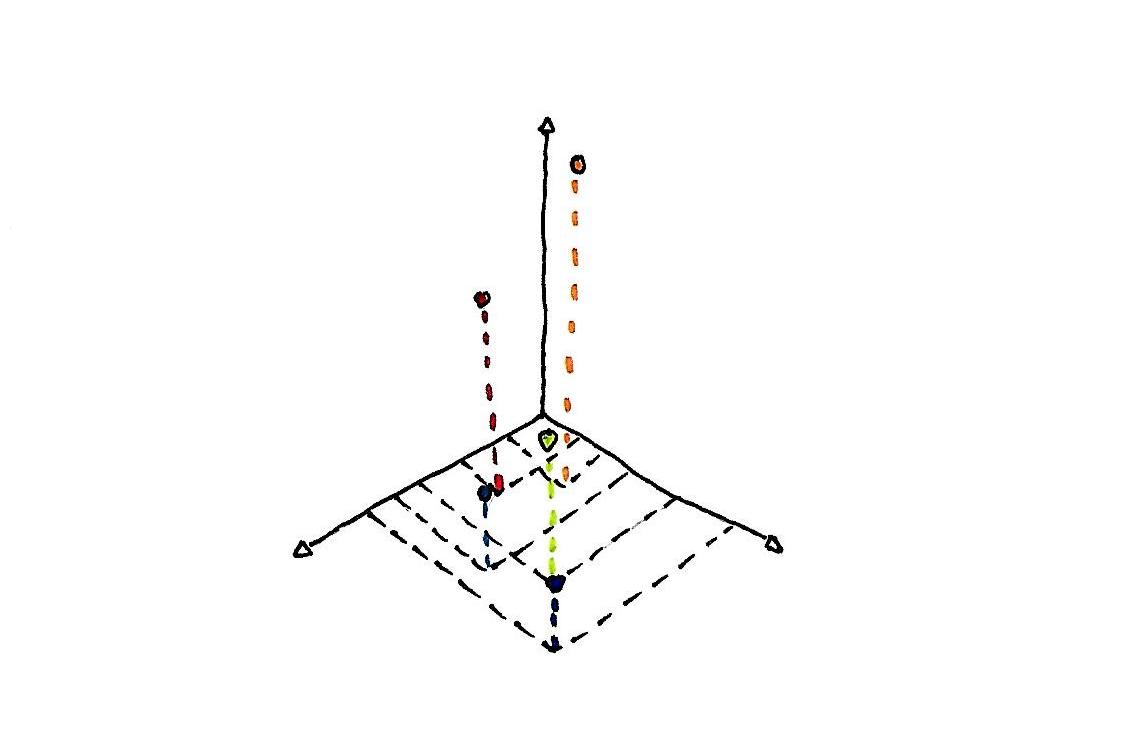Chose your Impact

A day has 24 hours, 16 of which I am awake, and 8, including my prime time, are invested in my work. For me, that begs the question: How much impact did my job produce? I find it unsurprisingly hard to answer because the word “impact” is mingled with such things as meaning, morality, or joy. But trying to think of all of them at the same time drives my brain just straight into a brick wall.
So I will solely focus on impact, the delta I add to our ever-changing world. But I am still not sure what that means. It seems like a single thing but it reveals a whole space if you think about it. I can ask myself whom I impact, to what degree, or if I do it directly or indirectly.
And this piece is about those dimensions. It is about maximizing that energetic feeling that you get when you changed something, for the better, not knowing yet what “better” actually means.
Whom you impact
Do you care about a small group of people? Maybe even just a handful you know by name? Or do you get a thrill out of knowing that hundreds of millions or even billions of people get in contact with the thing you do?

Whom you impact is the first dimension. Maybe you are a therapist or social worker and know each and every one of your clients by heart. Your impact is restricted to a few but that is by design. You choose to know those people; knowing someone deeply requires time and energy. Or maybe you work at a large tech company and the feature you rolled out is now used by people all over the world. You don’t know them but you know your work is out there.
One is not particularly better than the other. It is just a choice you have to make when selecting a profession, company, or career track. And over time you can adjust where you stand on that dimension. Now you might be an engineer working at some app used by millions thinking: I would rather know the people my energy is directed towards. Maybe another team or company will provide you with the right path. Maybe a more managerial position is a better way forward. Or a shift in priorities and perspective? The next feature becomes less relevant than helping out your colleagues and making sure they do their best work. All of a sudden whom you impact changed from millions to a few.
Degree of impact
This brings me directly to the next dimension: degree of impact.

How much do you actually change the world around you? Tinkering in your garage you figure out a way to make cheap, useful, and sexy flying cars. Shortly after everyone you know is zipping around and you just changed how people travel, commute, and how we plan our cities. Your work just had a massive impact on the lives of people.
The higher the degree of impact the more their lives, daily routines, and habits change. When you are a doctor chances are your impact is pretty far on the left side of that diagram. On the other hand, most jobs move the needle only a fraction and that is fine because it all gets aggregated together. But it might bother you when it comes to your relation to the work you do.
Again, maybe a career or perspective shift is due. Is there a role that brings you closer to where you want to be? Is changing priorities enough?
Directness of impact
Last but not least there is the directness of your impact.

Being a therapist you work directly with the people you care about. There are no layers, safeguards, or physical distance between you and them. Being an engineer is potentially a bit different. Maybe you are really good at deep technical work on the infrastructure level and you like it too, but what you do affects people only indirectly. Uptime increased by 0.1% but chances are users will not notice. Good for them but degree and directness are on a low.
A similar situation exists for most managers. You have a larger scope and degree of impact but now we talk hierarchy layers. The higher you get the lower you travel on the directness dimension.
The question you can ask yourself is: how much do you care about experiencing the impact you have?
Your journey through the impact space
Those are the dimensions I was able to identify. Maybe you see more. Let me know. In the meantime, it can be an interesting exercise to map out a path in this three-dimensional space. Check where you are right now. Where were you before? And where would you like to be if you would be honest with yourself?

Seeing that path might show you that you are on the right track or maybe even hit your sweet spot already. But it could also paint a different picture. At least now you know and created the potential to make adjustments. And changing the trajectory seems more likely to me than having one path set forever. I gather experiences over time, learn more about myself, and then adjust the impact I actually care about.
Epoligue
Some thoughts I didn’t know where to put else.
In this whole text, I always talk about human-to-human impact but of course, you can substitute ‘whom’ with anything. If you are a veterinarian that changes to: which animals and how many can you treat? Do you rather treat a small number and see how they flourish or do you work on a general treatment that can help an uncountable number of beings?
Or you care deeply about technical problems and you want to see more or a different impact on the system you work with. Of course Who becomes What in this context but in general it holds true.
Another thing I noticed, which is probably obvious to most people, is a set of correlations between those dimensions. Whom you impact and the directness of it goes in opposite directions. For example, the higher you go in a corporate hierarchy the less you interact with daily operations, the thing that produces that real-world impact. The opposite correlation seems true for degree and directness. The closer I or my work is to another person chances are I have the highest degree of impact that is possible for the work I do. Reality of course provides strange exceptions to any rule, but in general, those correlations seem to hold true.
Read on
You found a typo or some other mistake I made in this text? All articles can be changed here. If you want to exchange ideas then simply drop me a message at contact@paulheymann.de.